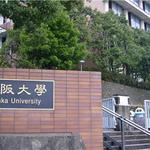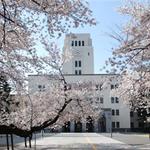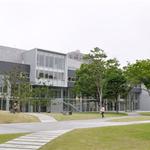Introduction to Otsuma Women's University Junior College
Overview
Otsuma Women's University Junior College is a private junior college located in Tokyo, Japan, founded in 1949. The school aims to cultivate high-quality female talents with professional knowledge and practical ability, and pays special attention to the comprehensive development and personality development of students. Otsuma Women's University Junior College has a high reputation in the fields of family science, literature, social information, etc., and is one of the well-known women's junior colleges in Japan.
Campus
Otsuma Women's University Junior College has one campus:
Sanbancho Campus: Located at 12 Sanbancho, Chiyoda-ku, Tokyo, it is the main campus of the school, and all courses are conducted here.
Educational Philosophy
Otsuma Women's University Junior College adheres to the educational philosophy of "independence, respect for individuality, and pursuit of truth", emphasizing the cultivation of students' independent thinking ability and social responsibility. The school is committed to cultivating talents with international vision and social responsibility, and pays special attention to the comprehensive development and personality development of students.
Disciplines and Majors
The Junior College of Otsuma Women's University has a number of disciplines and majors covering a wide range of fields:
Home Economics
Clothing
Food
Children's
Life Design
Literature
Japanese Literature
English
Communication and Culture
Social Information
Social Information
Human Relations
Human Relations
Human Welfare
Specialized Courses
Clothing: Learn the basic theories and practical methods of clothing design and production, and cultivate professionals who can work in the fields of clothing design and fashion industry. Course content includes clothing design, clothing materials, clothing production, etc.
Food: Learn the basic theories and practical methods of food science and nutrition, and cultivate professionals who can work in the fields of food development and nutrition guidance. Course content includes food chemistry, food processing, nutrition, etc.
Children's: Learn the basic theories and practical methods of child education and child psychology, and cultivate professionals who can work in kindergartens, nurseries, etc. Course content includes child psychology, child education methods, child health, etc.
Life Design: Learn the basic theories and practical methods of life design, and cultivate professionals who can work in the fields of interior design and lifestyle planning. Courses include interior design, lifestyle planning, color science, etc.
Japanese Literature: Learn the basic theories and practical methods of Japanese literature, and cultivate professionals who can work in the fields of education and cultural exchange. Courses include Japanese literary history, analysis of Japanese literary works, Japanese culture, etc.
English: Learn the basic theories and practical methods of English language and British literature, and cultivate professionals who can work in the fields of education and international exchange. Courses include English grammar, British literary history, cross-cultural communication, etc.
Communication and Culture: Learn the basic theories and practical methods of communication and cultural research, and cultivate professionals who can work in the fields of media and public relations. Courses include communication skills, cultural communication, media research, etc.
Social Information: Learn the basic theories and practical methods of social informatics, and cultivate professionals who can work in the fields of information management and data analysis. Courses include information management, data analysis, information system design, etc.
Human Relations: Learn the basic theories and practical methods of human relations and mental health, and cultivate professionals who can work in the fields of psychological counseling and human resource management. Courses include interpersonal relationships, psychological counseling, organizational behavior, etc.
Human Welfare Discipline: Learn the basic theories and practical methods of social welfare and community services, and cultivate professional talents who can work in social welfare institutions, community services and other fields. The course content includes social welfare policies, community services, elderly care, etc.
Practical teaching
The Junior College Department of Otsuma Women's University has advanced laboratories and practice bases, providing students with rich practical teaching resources. The school has established cooperative relationships with many companies and institutions, providing students with rich internship and practice opportunities. The school also has a simulation practice room, which provides students with a platform for practical operations.
International Exchange
The Junior College Department of Otsuma Women's University actively participates in international exchange programs, establishes cooperative relationships with universities in many countries, and provides students with opportunities for overseas study and exchange. The school has an International Student Office to provide comprehensive support and services for international students.
Ranking
The Junior College Department of Otsuma Women's University has a high reputation in the fields of family science, literature, social information, etc., especially among the top private women's junior colleges in Japan.
Fees
Admission fee: about 200,000 yen
Tuition:
About 600,000 to 700,000 yen per year
The specific fees may change, it is recommended to consult the school directly for the latest information
Campus
The campus of the Junior College of Otsuma University is beautiful and well-equipped, including modern teaching buildings, laboratories, libraries and sports facilities. The school also has student dormitories to provide convenient living conditions for out-of-town students.
Contact Information
Tel: +81-3-5275-6051
Fax: +81-3-5275-6052
E-mail: nyushi@otsuma.ac.jp
Other Information
Internship Opportunities: The school has established cooperative relationships with many companies and institutions, providing students with abundant internship and practice opportunities.
Employment Support: The school has a career guidance center to provide students with employment consultation, resume writing guidance and interview skills training to help students find employment smoothly.
Scholarship System: The school has a variety of scholarship systems to help students reduce their financial burden.
-

The University of Tokyo
-

Kyoto University
-

Osaka University
-

Waseda University
-

Hitotsubashi University
-

Nagoya University
-

Tokyo Institute of Technology
-

University of Tsukuba
-

Keio University
-

Tohoku University
-

Mesoamerican University
-

Istmo University
-

Mariano Galvez University of Guatemala
-

Regional University of Guatemala
-

Galileo University
-

Francisco Marroquín University
-

Rafael Landívar University
-

University of the Valley of Guatemala
-

University of San Carlos of Guatemala
-

Technological Institute of Tlaxcala Plateau
-

Golfo University
-

Technological University of South Sonora
-

Technological University of Huejotzingo
-

Tizimín Institute of Technology
-

Chilpancingo Institute of Technology

